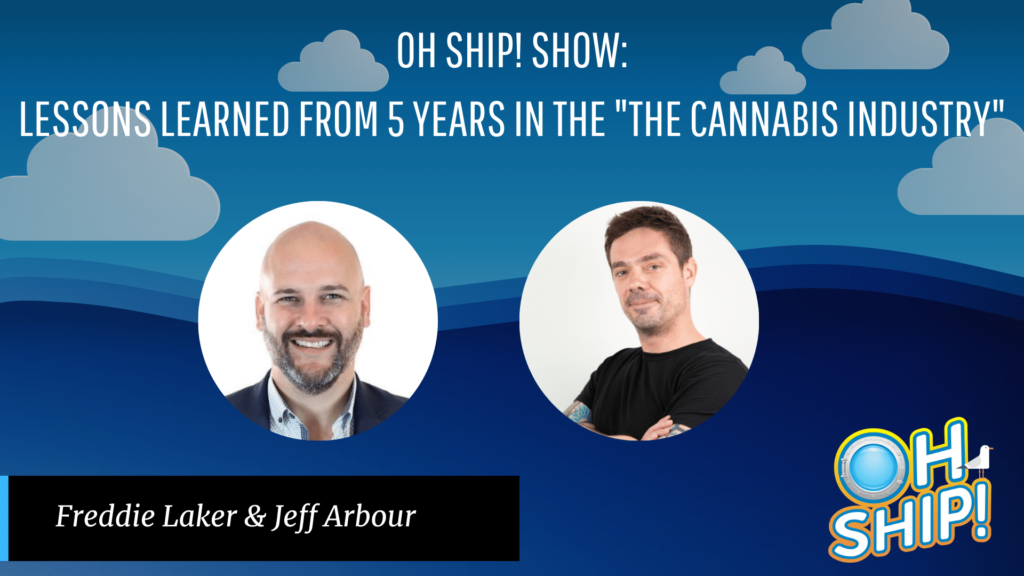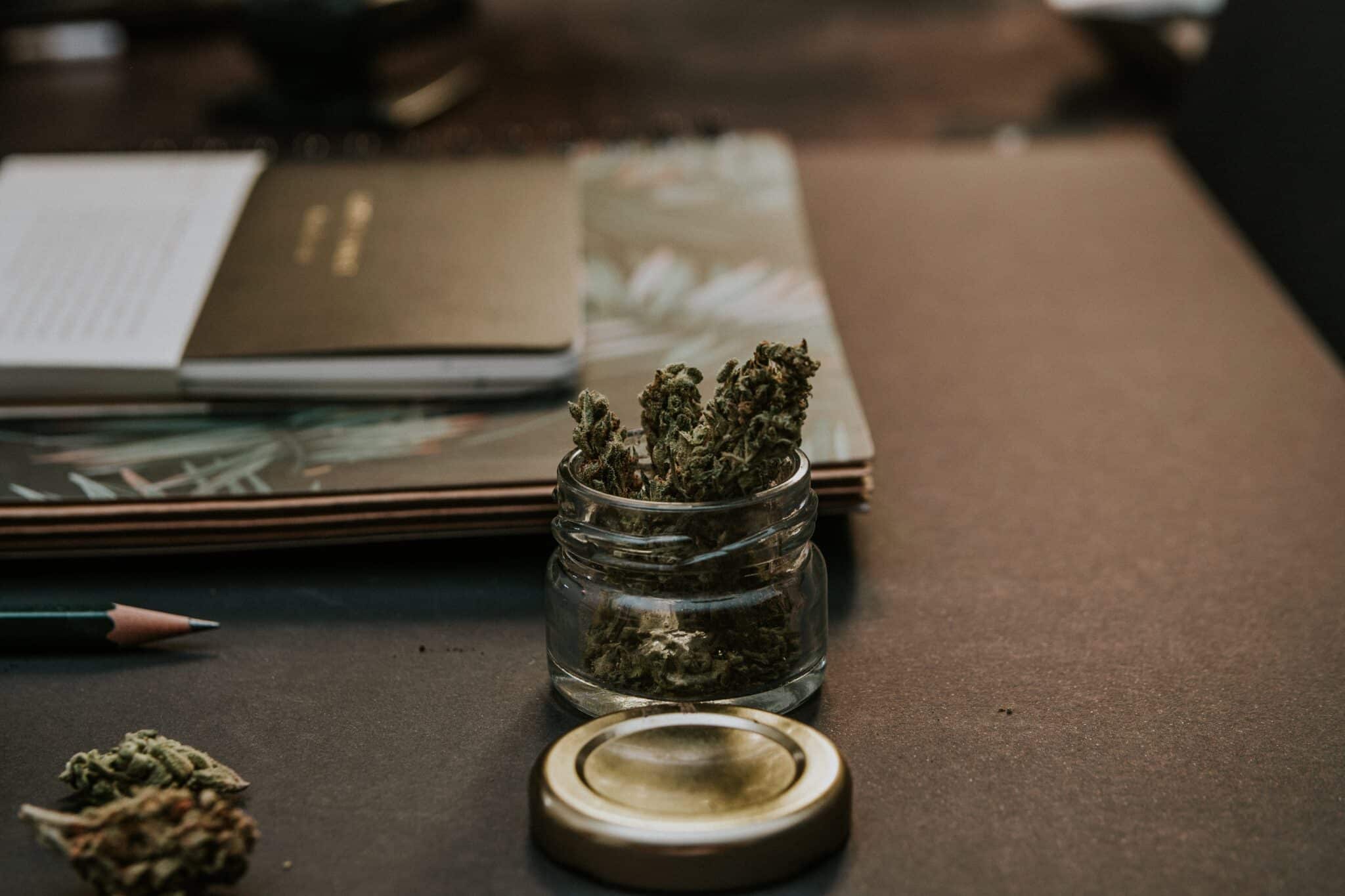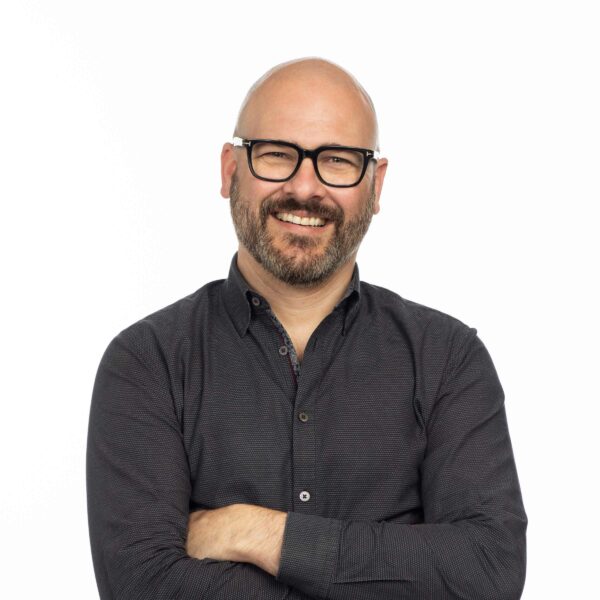Jeff explains the biggest cannabis industry challenges and mistakes people make in the cannabis space as well as the greatest opportunities.
Jeff Arbour, a partner of Chameleon Collective, has spent his career helping businesses navigate the digital landscape and build high-profile brands. Now, he’s channeling that expertise into cannabis. As founder and CEO of Nana & Pop, he builds brands for some of the biggest players in the cannabis space. In our conversation, he covers everything from the biggest mistakes people make to opportunities for founders. Read on for lessons he’s learned throughout the industry’s evolution.
Why did he get involved with cannabis?
In the summer of 2016, cannabis caught Jeff’s interest because several states were considering adult-use legalization. With a long-term appreciation for cannabis, he knew he had to get involved. “As those markets were turning, I couldn’t not be a part of it,” he says. He knew that having a trusted brand would help more people to enter the space—and he saw a clear role for himself here.
Some people think you need to be a wholesale producer, contract manufacturer, and brand to operate in cannabis. But actually, it operates much like other consumer packaged goods, and its CPG trends mirror those of CBD. “It’s all driven by wholesale ingredients, wholesale sourcing, and contract manufacturing,” Jeff explains. A cannabis farmer often simply grows the product, while another company handles the retail side.
Just as the grower must work hard to cultivate a strong product, marketers must create a strong brand identity. “The input, the process that you take in cultivation, is what drives the output—and this holds true in branding and marketing as well,” says Jeff. “If you follow the brand development process, the result is going to be a strong brand identity.”
Diving in Headfirst
Jeff wanted to take the plunge, so he got involved with a cannabis-focused venture fund. He left New York City and moved to LA, the industry’s investment hub, seeking to learn about how all the moving parts of the industry worked together. He spent a year taking consulting assignments and getting to know the key industry players.
Wanting a broad knowledge of all aspects of the trade, Jeff then decided to spend six months living on a cannabis farm in northern California—essentially the Silicon Valley of cannabis production. This bold move gave him hands-on knowledge of genetics and cultivation methodologies. He learned what it takes “to grow good cannabis, great cannabis, and then the best cannabis in the world,” which would begin shaping his vision for his business today.
Lessons Learned
Aside from knowledge of cultivation, Jeff has built up a wealth of knowledge on how the industry operates. Here are the key lessons he’s learned over the past five years in cannabis, from its major challenges to the biggest opportunities for founders.
Growing pains of the cannabis industry
The cannabis industry is not for the impatient, Jeff emphasizes. Here’s a rundown of the main challenges investors face.
Slow speed due to regulations
“The only thing that moves quickly in the cannabis sector is press releases,” Jeff quips. Even after states legalize cannabis, it can take a long time for regulations that allow businesses to operate to take effect. Businesses have no control over the timeline for opening and earning revenue. New York has adopted an adult-use program, but it hasn’t created a cannabis control board yet, for example.
New Jersey requires a cannabis business to have a physical space in order to receive a license. Several hundred companies that have bought property and applied for licenses have been stuck in limbo for years, paying for real estate they can’t yet use. “In cannabis, you just never know when the end date is. You just never know when you’re gonna actually be able to open the doors after you apply,” Jeff says.
When he got involved, there were six or seven state-level markets, but everyone was really planning for cannabis to go national. Of course, no one knew whether it would happen through widespread legalization or one state at a time. “The pace of the industry was very hard to adapt to—it moves very slowly,” Jeff stresses.
At the same time, the industry has mushroomed since he began. He never anticipated that Virginia would adopt an adult-use market in 2021, for instance.
Markets constrained within individual states
There are 19 adult-use states today, including Connecticut and Rhode Island, two other recent adopters. But state regulations determine where the product can be produced. “Today, every market is contained by and restrained within the individual states,” says Jeff. “There’s conversation about interstate commerce, but nothing has passed or been approved.”
This poses challenges for brands that want to market across states, and eventually, at a national level. But while the product can’t cross state lines, brands can. They can work to establish consistent product formulas and a strong brand identity even though products are always produced in-state.
The biggest mistakes people make
Jeff has seen many people encounter some common pitfalls as they step into the cannabis industry. Here are the biggest ones.
Not pursuing it out of love
“My biggest advice: If you don’t love cannabis, don’t do it. It’s a very difficult space and if you don’t enjoy this space, I recommend you look somewhere else,” advises Jeff. There are plenty of rapidly growing sectors where you can risk “breaking things” and apologize later, and that doesn’t work in cannabis.
Some people think, “It’s weed, so it’s gonna be easy,” he says. He’s seen a lot of bravado and arrogance from newcomers—and a lot who immediately leave. You have to enjoy the journey, or it won’t be worth it. “The cannabis sector taught me patience,” says Jeff.
Not taking an artisanal approach
“The best cannabis is really a result of following what I like to call an artistic approach to cannabis cultivation. The only way to produce really high-quality cannabis is to follow that process,” Jeff asserts.
Not a lot of consumers know the difference between really great cannabis and good cannabis, so some brands skimp on this process.
The terpene profile is what gives cannabis its smell and taste, not the THC amount, explains Jeff. “It’s all about taste and smell,” he says. “If you’re new to cannabis, and you’re wondering what to do or what different strains to try, the nose knows. Smell it.” See whether you lean in or lean back.
Opportunities for founders
Constrained markets present an opportunity for small players since big companies can’t dominate every space. Each state’s market essentially functions as an independent industry. “As it stands today, they’re all kind of landlocked markets, which makes it very difficult for large companies, but it creates massive opportunities for independent entrepreneurs.”
“The advantage of the cannabis sector, from a CPG and consumer packaged goods standpoint, is there are no legacy brands. It’s just this wide-open playing field, and there are hundreds and hundreds of different customer profiles in cannabis,” he says. “The opportunities are limitless.”
That’s what shaped his vision for Nana & Pop. “We looked at the brand landscape, and we built brands for audiences that no one was really addressing,” he explains. They found their niche in catering to older demographics that few were marketing toward.
Early movers can also position themselves for bigger opportunities. “Being first and obtaining early leadership positions is immensely valuable because cannabis legalization and the cannabis movement is not just a United States thing. This is happening globally,” he continues. Mexico now allows recreational cannabis, and in Canada, it’s completely legal. While the cannabis industry isn’t for everyone, those who truly love the journey might take great satisfaction in helping to shape this emerging market.
If you enjoyed hearing Jeff’s insights, subscribe and listen to the Oh Ship! show for more great content!








